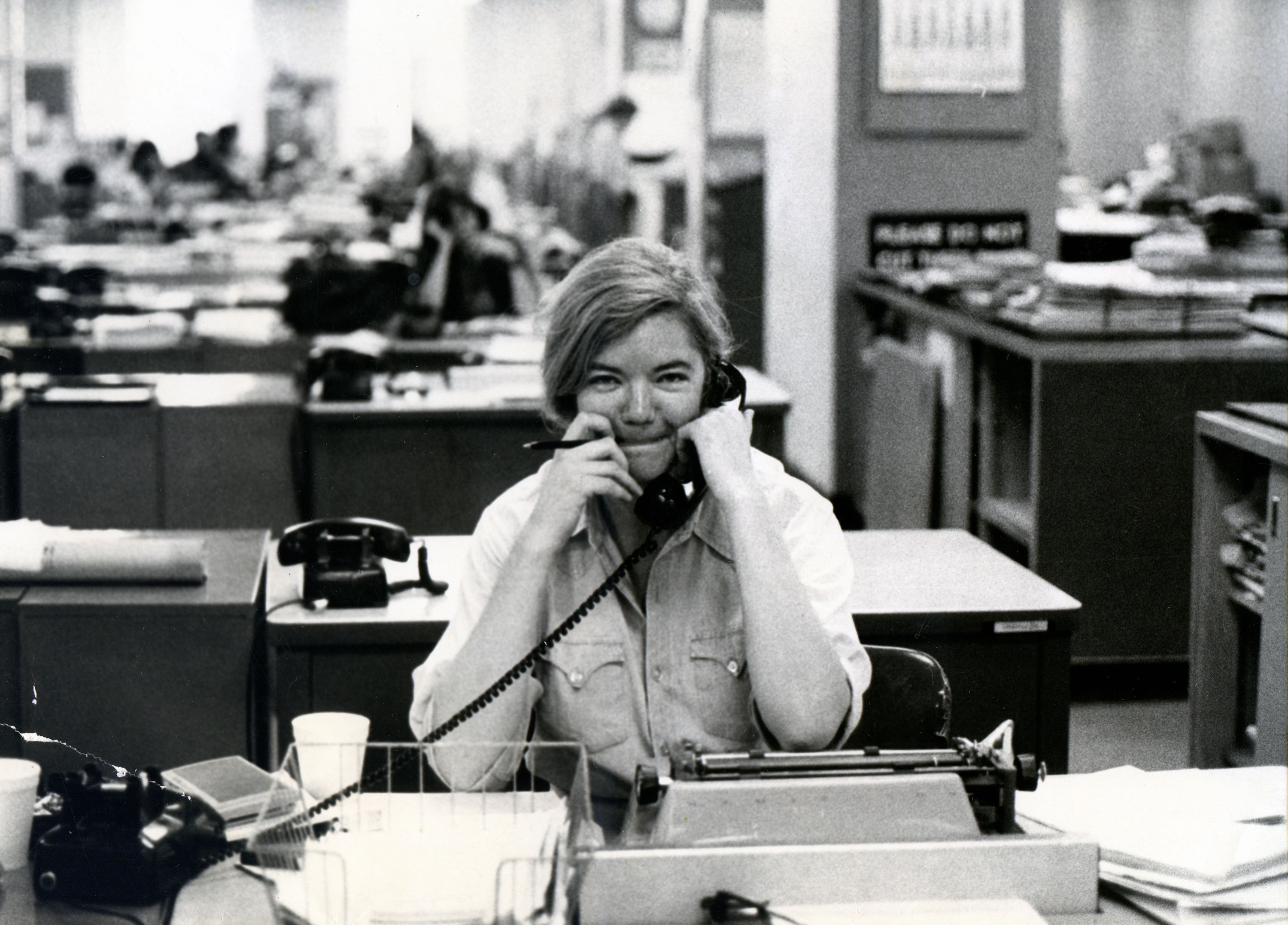Play all audios:
_Editor’s Note: This month, we’re reprinting some of our favorite Molly Ivins columns in celebration of her birth month and the upcoming wide release of _Raise Hell: The Life & Times Of
Molly Ivins_, the documentary about her life. This column from 1995 remains prescient today._ BY MOLLY IVINS SEPTEMBER 29, 1995 Seeing yet another story in the newspaper about global warming
doesn’t make much of an impression unless, of course, some storm has just knocked out your electricity for three days and your acquaintance with the greenhouse effect is now measured in
buckets of sweat. The front page of the _New York Times_ informs us that scientists are finally convinced that the phenomenon of global warming (I keep mistyping that as “global warning”)
can be attributed at least partly to human activity. Until now, the climatologists have been split over whether global warming was just part of a natural swing in climate, like the end of
the Ice Age, or whether the heating of the atmosphere is being caused by carbon dioxide released by burning fossil fuels. “Even the string of very warm years in the 1980s and 1990s could
have been just a natural swing of the climatic pendulum,” the _Times_ reports. “…But a growing body of data and analysis now suggests that the warming of the last century, and especially of
the last few years, ‘is unlikely to be entirely due to natural causes and that a pattern of climatic responses to human activities is identifiable in the climatological record,’” according
to a new report by the Intergovernmental Panel of Climate Change. This summer, five hundred people died from a heat wave in Chicago, and Russian scientists report venomous snakes appearing
for the first time in the far north. A team of British scientists predicts that 1995 will be the warmest year in human history. Bill McKibben, author of _Hope, Human and Wild_ (out next
month), wrote in the _Los Angeles Times_ that the most curious part of this phenomenon is not that it’s taking place—global warming is right where it’s supposed to be, according to all the
predictions by all the scientists who have studied it—but that no one is paying attention. As they say at Alcoholics Anonymous, denial is not just a river in Egypt. Denial of global warming
is being aided and abetted by those whom McKibben calls “confusionists”—ideologues and industry flacks who keep trying to discredit the scientists by using inaccurate and misunderstood
statistics. Rush Limbaugh, for some bizarre reason, has taken it upon himself to crusade against the idea of global warming as some kind of left-wing plot. And as usual, our numskull pals in
Congress are heading militantly in the wrong direction. Despite House Speaker Newt Gingrich’s vaunted interest in the future, the Republicans are passing the most shortsighted budget in the
history of modern science. Forget mean-spirited, which it also is—this budget is the Mr. Magoo of government moves. According to the American Association for the Advancement of Science, the
budget will chop civilian research by thirty-three percent by 2002. For fiscal ’96, NASA’s global-warming monitoring is cut by twenty-two percent; mass transit research by thirty-six
percent; water quality by twenty-nine percent; hazardous waste disposal by twenty-four percent; toxic substances by thirty percent; nuclear non-proliferation by twenty-six percent; and new
materials research by one hundred percent. All of this is being done in the name of balancing the budget. But as AAAS chief Richard Nicholson told the _San Francisco Chronicle_, the reason
for budget-balancing is so we don’t shortchange our children and our children’s children: “If, in the process of doing that, we reduce the level of scientific research, we may be making
their future much worse than anything done by debt.” The debate over whether to spend money on research and development is familiar in both the private and public spheres, and the terms of
the debate are always the same: long term vs. short term. Just as the corporate world has become increasingly short-sighted, increasingly focused on next quarter’s profits, government—which
should be tugging in the opposite direction—appears to have contracted the same form of folly. While the Dole bill (the Regulatory “Reform” Act) is at least temporarily stalled in Congress,
much of the same agenda is being carried out by a back-door approach through the budget process. Citizens for Sensible Safeguards has documented a staggering array of rollbacks in
environmental and safety standards buried in the budget bills. The first method is flat reducing the budgets of enforcement agencies so they won’t be able to do squat, much less improve on
what they do; the second is to add riders to the appropriations bill that prohibit agencies from enforcing or implementing specific laws and regulations. One theory of government is that it
only reacts to a crisis; trouble comes when we cannot even agree on what a crisis is. Pardon me if some left-wing bias is showing here, but I’d rather get my scientific information from
scientists than from Limbaugh. READ MORE:

